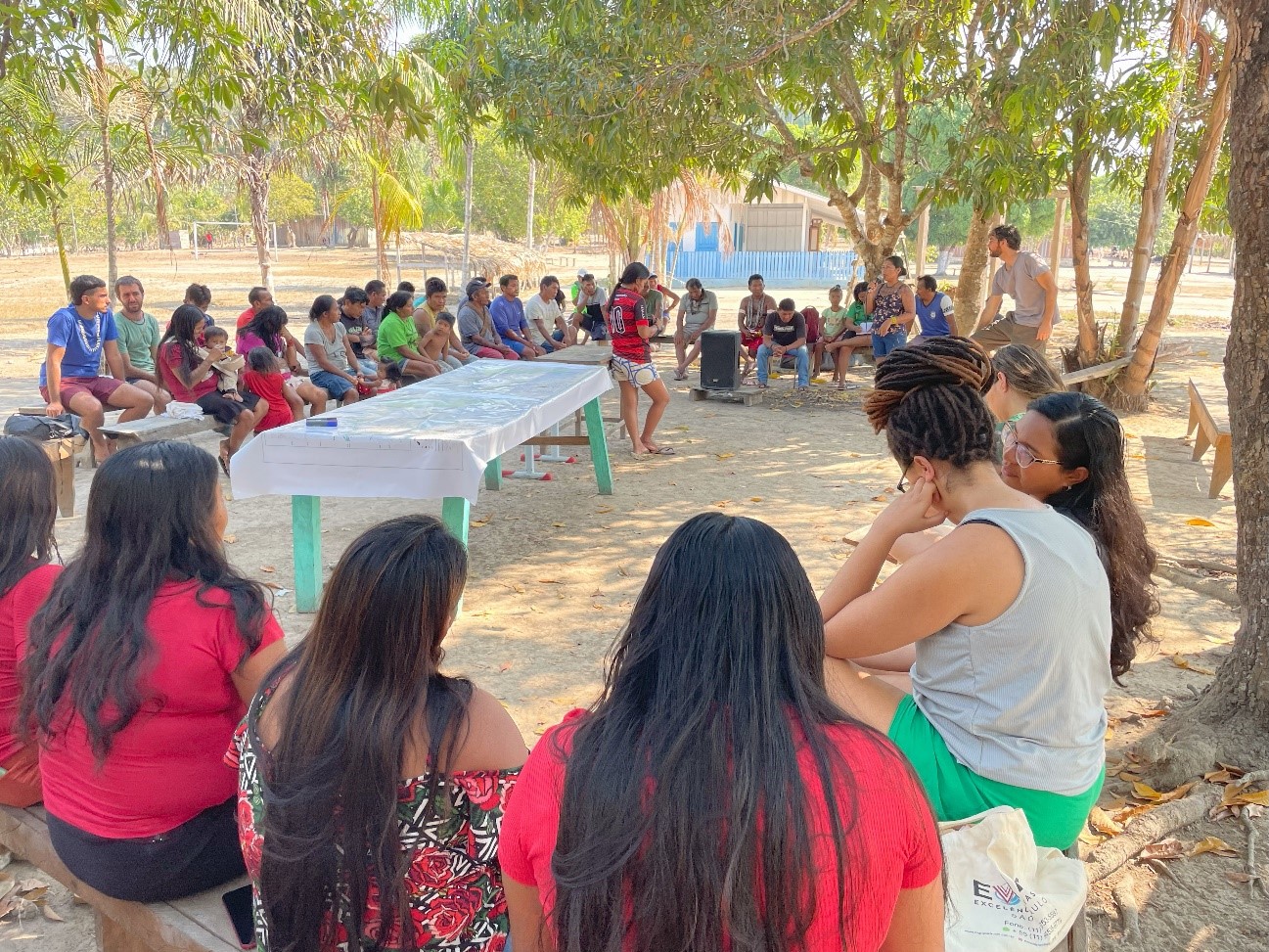
The purpose of the mission conducted in the Tapajós Basin (Pará, Brazil) was to foster engagement, listening, and needs assessment with local communities and institutions, in order to facilitate the development of a diagnosis addressing drug policy and local development issues. This field visit, undertaken by three UNODC Brazil projects — the Center for Studies on Drugs and Community Social Development (CDESC), the Tapajós Project, and the Strengthening Rapid Alert Systems and Responses to Environmental Crimes Related to Illegal Gold Mining in Indigenous Territories Project (SAR-TI) — involved technical visits to the Nova Trairão village near Jacareacanga, as well as Santarém and Itaituba, in the Brazilian state of Pará. UNODC Brazil conducted meetings with local authorities, interviewed indigenous leaders, and engaged with social and health professionals and representatives of organized civil society.
Within the scope of CDESC, the mission was carried out in collaboration with the National Strategy for Mitigating and Repairing the Impacts of Drug Trafficking on Indigenous Territories and Populations, of the National Secretariat for Drug Policy and Asset Management of the Ministry of Justice and Public Security (SENAD/MJSP), seeking to provide subsidies for its future actions.
At the meeting with leaders of the Munduruku People in the Nova Trairão village, the Tapajós Project made progress on the architectural redesign of the Training and Resistance Center and other collective structures in the village, which will host assemblies, training and meetings.
In the context of SAR-TI, the Munduruku People have been in talks about autonomous oversight and territorial protection. In order to strengthen the Mundururku People's autonomous surveillance, UNODC, through SAR-TI, donated GPS devices to help with this type of activity. In addition, a possible physical and operational structure in the village was discussed.